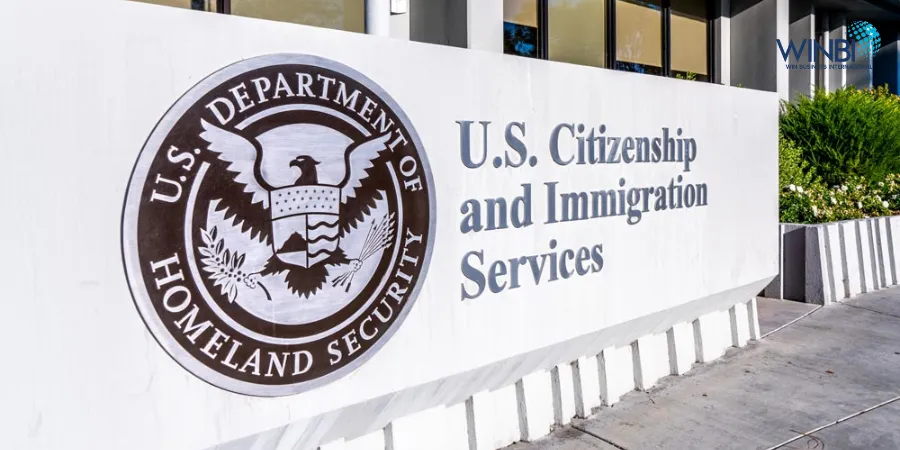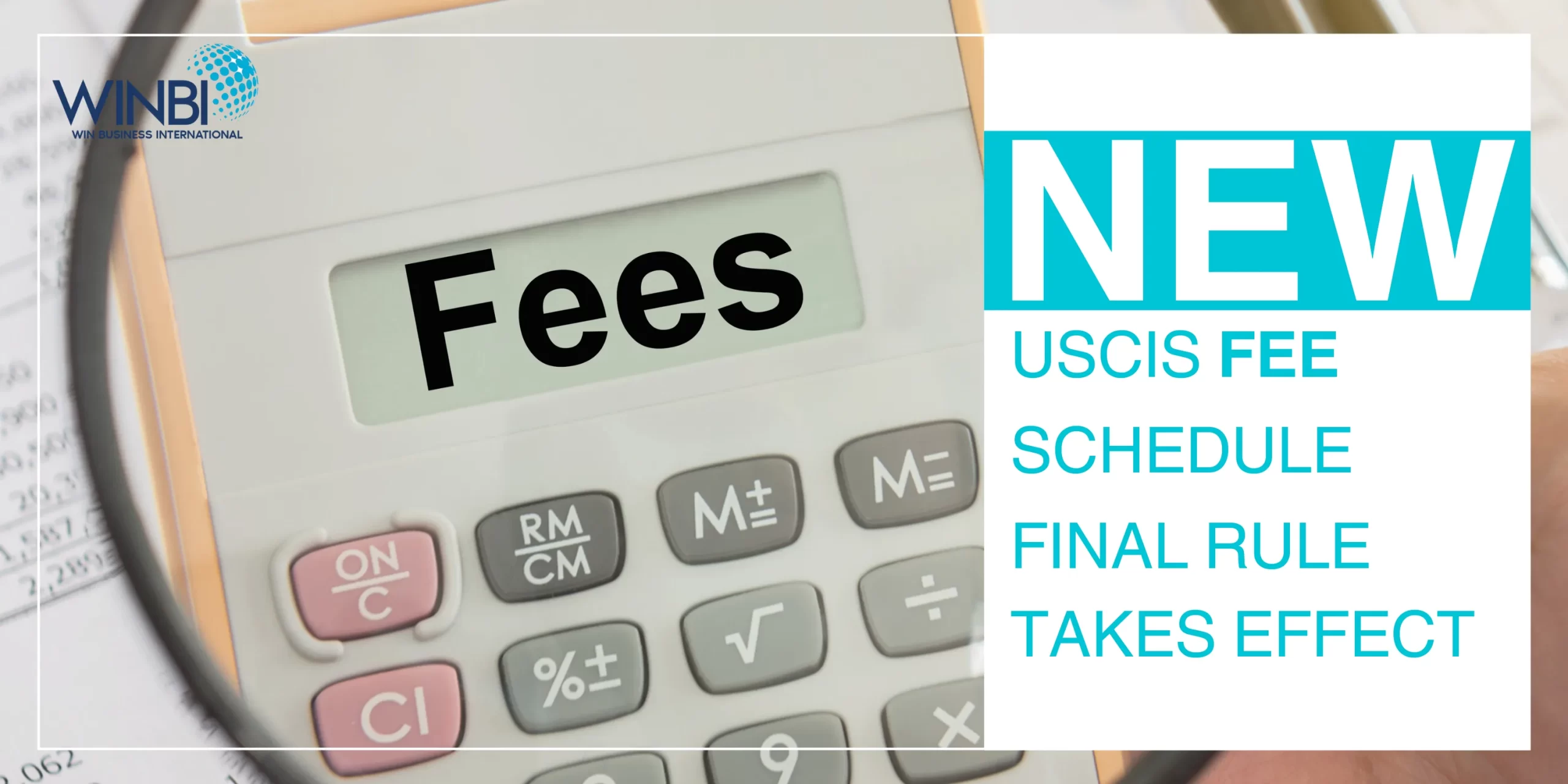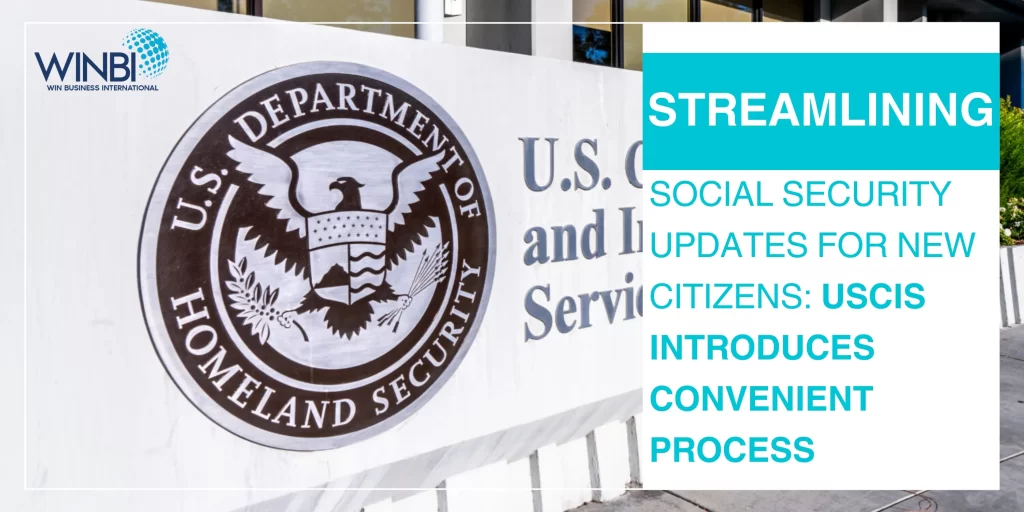The Department of Homeland Security (DHS) has recently announced significant changes through the USCIS Fee Schedule Final Rule, published in the Federal Register on Jan. 31, 2024. Scheduled to take effect on Apr. 1, 2024, this rule brings notable adjustments to various immigration benefit request requirements. Here’s a concise overview:

Fee Schedule Changes
Effective Apr. 1, 2024, filing fees will no longer be included in form instructions. Instead, applicants will find them outlined in Form G-1055, Fee Schedule. USCIS will update the Fee Schedule and Fee Calculator accordingly. Applicants should refer to Table 1 of the Fee Rule and USCIS FAQs to compare fees before and after Apr. 1. It’s crucial to assess fee exemptions and eligibility for fee waivers, especially for humanitarian-based applicants.
Online Filing Discount
Many benefit requests, with some exceptions, now qualify for a $50 discount for online filing. USCIS plans to expand online filing to additional forms, enhancing accessibility and efficiency.
Biometrics Fee
The separate biometrics fee for certain forms has been eliminated, with limited exceptions. Notably, forms accepted on behalf of the Executive Office for Immigration Review (EOIR) will still incur a separate $30 fee.

Payment Adjustments
Several adjustments have been made regarding payments. USCIS will not redeposit payments returned as unpayable for reasons other than insufficient funds. Fees paid via credit card are non-disputable, except at USCIS discretion. Additionally, the $30 returned check fee has been eliminated. USCIS now requires separate payments for multiple applications submitted simultaneously.
Form Revisions and Deadlines
Due to fee schedule changes, USCIS will release revised forms effective Apr. 1, 2024. While prior and new editions of most forms will be accepted through Jun. 3, 2024, there is no grace period for certain new forms. These include Form I-129, Form I-129CW, Form I-140, Form I-600A, and Form I-600. USCIS will determine form versions and fees based on the postmark date, using the receipt date for filing deadlines.
Fee Exemptions and Waivers
The Fee Rule encompasses existing and new fee exemptions, notably extending to humanitarian filings. Expanded exemptions cover a range of categories, including Special Immigrant Juveniles (SIJs), survivors of human trafficking and crime, Violence Against Women Act (VAWA) self-petitioners, and more. These exemptions extend through the adjudication of adjustment of status and apply to derivative beneficiaries in specific contexts.
Fee waivers are available based on inability to pay, with eligibility criteria codified in the Rule. Applicants may submit written requests or Form I-912, attaching supporting evidence. Notably, USCIS accepts evidence of a child’s receipt of means-tested benefits to demonstrate a parent’s inability to pay. Fee waivers eliminate the need for payment; submitting fees in error may result in fee intake and deposit by USCIS.

Adjustment of Status and Fee Unbundling
For Form I-485 Application to Register Permanent Residence or Adjust Status postmarked after April 1, 2024, the filing fee generally increases to $1,440, with a reduced fee of $950 for children under 14 filing concurrently with parents. The Fee Rule mandates unbundling of filing fees for Form I-485, Form I-131, and Form I-765, unless applicants qualify for fee exemptions or waivers. Notably, EAD applications alongside adjustment of status incur a half-price fee of $260.
Other Application Fee Changes
The Fee Rule revises fees for various applications, including Form I-90 for replacing permanent resident cards, DACA-related applications, TPS registrations, naturalization, and petitions for nonimmigrant workers. Notably, a new Asylum Program Fee of $600 is introduced for certain nonimmigrant worker petitions, with exemptions and reductions for specific employers.
These updates aim to streamline processes and ensure clarity in fee structures, ultimately enhancing the immigration application experience.


